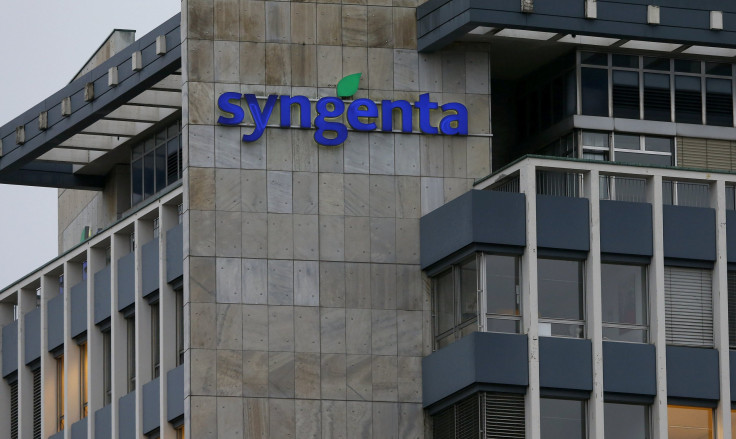ChemChina Offers To Buy Syngenta For Over $43B

China’s state-owned ChemChina offered to buy Swiss agricultural giant Syngenta AG for more than $43 billion, in a deal that could be the largest takeover of a foreign firm by a Chinese company if it wins regulatory and investor approval.
The cash offer valued Syngenta at $465 per share, a premium of 20 percent from its last close of 392.30 Swiss francs ($385) on Feb. 2., the two companies said in a joint statement Wednesday. ChemChina also offered investors a special dividend of 5 Swiss francs ($4.91) per share if the deal went through. The takeover would transform ChemChina, formally known as China National Chemical Corp., into the world’s biggest supplier of pesticides and agrochemicals.
The companies also said that a future public offering could be in the pipeline but did not divulge further details. Syngenta’s board approved the offer and unanimously recommended it to shareholders Wednesday.
ChemChina announced that it planned to maintain Syngenta’s current management team, with ChemChina Chairman Ren Jianxin at the head of a 10-member board that would include four of the existing Syngenta board members.
"The discussions between our two companies have been friendly, constructive and co-operative, and we are delighted that this collaboration has led to the agreement announced today," Ren said.
The transaction is expected to conclude by the end of the year. The Swiss pesticides and seeds company had turned down a $45 billion offer from U.S. seed company Monsanto Co. amid a consolidating agricultural market that saw Dow Chemical Co. and DuPont Co. merge in a $130 billion all-stock deal in November last year.
U.S. Regulatory Concerns
While some analysts say ChemChina’s offer for the Basel, Switzerland-based Syngenta would be easy to get past regulatory watchdogs, the deal could reportedly face its toughest scrutiny from the a U.S. national security watchdog — the Committee on Foreign Investment (CIFUS).
CIFUS would be looking closely to see if such a deal would endanger American food security and if the combined company’s locations would be too close to U.S. military bases, Bloomberg reported citing lawyers versed in the security concerns of such multi-national transactions.
Last year, Syngenta had rebuffed Monsanto’s cash-and-stock offer, arguing that such a merger would face serious concerns from competition regulators in several parts of the world.
Ultimately, a Chinese takeover of Syngenta probably wouldn’t raise national security concerns that are serious enough to scuttle the deal, Harry Clark, a lawyer at Orrick, Herrington & Sutcliffe LLP, told Bloomberg.
Syngenta Sales Slump
On the earnings front, Syngenta’s 2015 revenue slumped 11 percent due to low crop prices, emerging market instability and "massive" movements in currencies. Syngenta's full-year net profit was $1.3 billion, down 17 percent on the year before, the company said Wednesday, in a separate earnings statement.
Syngenta said it had done its best to navigate various headwinds in 2015, the biggest concern being the strengthening U.S. dollar against emerging market currencies such as Brazil’s real.
"Our ability to navigate our way through these headwinds was notably evident in 2015, when exchange rates reduced our full year sales by $1.8 billion – and yet the impact on EBITDA was contained at just $100 million," the statement said.
Wednesday’s deal underscored the growing appetite of Chinese companies for big-ticket foreign brands. China’s latest moves in this direction include Haier Group’s $5.4 billion purchase of General Electric Co.’s home-appliance business and Dalian Wanda Group’s deal to takeover Legendary Entertainment.
ChemChina itself bought over Italian tiremaker Pirelli & C. SpA last year and led a group that agreed to buy German machinery maker KraussMaffei Group for 925 million euros ($1 billion) in 2016.
© Copyright IBTimes 2024. All rights reserved.





















